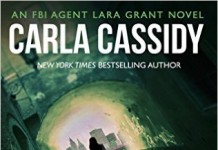 The US isn’t the only place where publisher e-book prices are higher than some consumers would like. While we’ve carried a number of examples where the e-book price was higher than the paper book price, most of them have focused on America. But on his blog nikf.org, Nik Fletcher rants about some British Kindle e-book price gouging.
The US isn’t the only place where publisher e-book prices are higher than some consumers would like. While we’ve carried a number of examples where the e-book price was higher than the paper book price, most of them have focused on America. But on his blog nikf.org, Nik Fletcher rants about some British Kindle e-book price gouging.
Fletcher calls back to the Metro article on piracy I mentioned here, and suggests that high pricing might be a contributing factor. He brings up the example of a Jeffrey Archer novel that is priced at £9.99 (£11.99 MSRP) for the Amazon Kindle e-book—but £5.39 (£7.99 MSRP) for the paperback.
Right now, publishers are stinging – or as Fraser more succinctly puts it gouging – eBook customers. I completely understand that there’s costs involved to produce an eBook version of a work. However, when you’re no longer smashing together some (entirely physical) pulp, pressing ink onto it, and shipping it some place, the idea that a premium should apply simply fails logic. The idea of paying substantially more for a digital copy of the exact same text can only be one set up by a publishing house who’ll next year announce stagnant eBook sales – most likely as a result of people looking to buy digital texts thinking “Screw this, I’ll buy the paperback cheap” or resorts to nefarious means.
He suggests that to avoid piracy, publishers should launch books globally from day one (the Harry Potter books do prove it’s possible), and they should be priced commensurately with paper versions. (Publishers had promised this was going to happen when they imposed Agency Pricing, but there seem to be a lot of cases where they just aren’t hitting that goal.)

































He picked a bad example book. The paperback isn’t out until September.
Unfortunately Nick Fletcher has not understood most publishers’ current model. Publishers are still (as he put it) smashing together some (entirely physical) pulp, pressing ink onto it, and shipping it some place. Most publishers are not producing exclusively e books – the market for print is still the prime concern – and still what most customers want and so print runs are not actually being reduced yet. The e is an adjunct to the print, so isn’t in fact saving them money. If anything e is adding costs in production, admin, delivery, and potential impact on print sales.
And not to mention the entire commissioning, editorial, sales and marketing process that will still happen for all books.
I’d argue e books are not always substantially pricier than print. Models vary but some publishers believe the greater functionality and freedom of e is worth something above the print price. Fletcher also does not mentioned VAT which has to be added to e in the EU(but not to print). This is something that cannot be circumvented and so unless publishers or booksellers want to absorb that cost, e prices will be higher.
People keep crying about the ebook being more than the paper book and 6 months ago I agreed wholeheartedly with them.
However, when I look around Amazon UK’s Kindle store nowadays i’m seeing little evidence of publishers artificially inflating ebook prices over paper ones. Yes, there is the odd one or two ebooks that cost excessively more but in the vast majority of cases people aren’t looking at the prices properly. They see the paperback for £5.99, the hardback for £9.99 and the Ebook for £11.99 and throw a fit without actually noticing the fact that the paperback isn’t out for another 3 months… When the ebook will fall to a similar price.
Personally, I think that Amazon deliberately display prices like that to make customers irate and side with them on the whole Agency Pricing issue
I don’t like the fact that Ebooks are generally slightly more expensive than paper books but a lot of people don’t realise how much the difference 20% VAT makes. My rule of thumb is simple for VAT. I’ll happily pay 10% more for an ebook than a paperbook on the assumption that the other 10% VAT is offset by the reduced cost of producing a digital book to a paper one.
Anything more than that and i’m not interested and if they’res a mark up of more than than 20% between digital and paper I will simply make a not never to buy that book in any format, even if prices do drop.
A 30 second visit to Amazon’s Kindle Store produces a long list of such titles where the eBook is more expensive that the paper book.
Th reality of economics is that they should be substantially cheaper and Fletcher is 100% right. As we on Teleread know from many prior discussions the margins on eBooks are substantially higher than paper and to make the same profit contribution, they should be prices substantially cheaper.
The Agency Publishers are screwing customers to finance their own incompetence
The Agency Pricing Agreement is anti competitive and should be illegal. Hopefully the EU and US authorities will rule against it soon.
“Th reality of economics is that they should be substantially cheaper”
Unfortunately that is simply not true.
A NY Times bestseller costs less than £1 to print, bind, store and distribute.
In the UK the average paperback price is £7.99 so even if you take off a VERY generous £1 for paper costs you still have to add 20% VAT which brings it up to £8.38